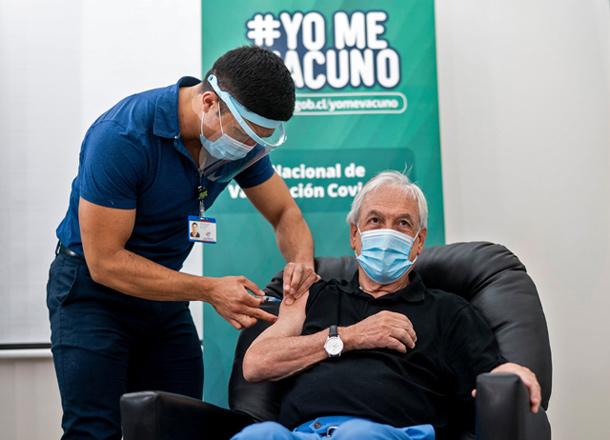- International News
- Sun-2021-02-14 | 05:02 pm

Developing new COVID-19 vaccines will fail to end the pandemic unless all countries receive doses in a fast and fair manner, disease experts warned on Saturday.
As several nations consider implementing vaccine passports when international travel resumes, the authors of an open letter published in the Lancet medical journal said vaccine stockpiling in wealthier countries would only prolong the global health emergency.
They warned that "vaccine nationalism" could leave the Covax initiative aimed at getting vaccines to low- and middle-income countries facing a huge dosage shortfall for several years to come.
"The stark reality is that the world now needs more doses of COVID-19 vaccines than any other vaccine in history in order to immunise enough people to achieve global vaccine immunity," said lead author Olivier Wouters from the London School of Economics and Political Science.
"Unless vaccines are distributed more equitably, it could be years before the coronavirus is brought under control at a global level."
Despite there being more than two dozen COVID-19 vaccines either in development or approved for use, lower income countries still have enormous logistical challenges to procure immunisations and deliver them to populations.
These include a lack of funds to purchase vaccines, as well as poor infrastructure to transport and store them — especially since the mRNA vaccines on the market currently need to be kept ultra cold throughout their delivery.
And despite unprecedented public and private investment in vaccine development and procurement, Covax estimates it will need an additional $6.8 billion in 2021 to secure supplies for 92 developing nations.
Based on available sales figures, the authors said that rich nations representing 16 per cent of the global population had already secured 70 per cent of vaccine doses — enough to inoculate every one of their owns citizen several times over.
"Securing large quantities of vaccines in this way amounts to countries placing widespread vaccination of their own populations ahead of the vaccination of healthcare workers and high-risk populations in poorer countries,” said co-author Mark Jit from the London School of Hygiene and Tropical Medicine.
The letter called on manufacturers to accelerate technology transfer to developing nations to help them produce doses domestically, as well as price controls for what it termed "prohibitively expensive” vaccines currently on the market.
The authors said that vaccines developed by China, India and Russia, once authorised by the World Health Organisation, could be a big help to poorer nations as their supply and storage were simpler than the US/European alternatives.













